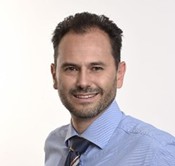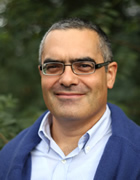in Fiber-only Network Wholesale Telcos
FEATURED PAPER
By Claudio Mazzei, Daniele Fioramanti, Alessandro Quagliarini, Carlo Salatino, Andrea Reale, Francesca Brunetti
Rome, Italy
Abstract
Nowadays, Wholesale Operators have the critical role of “enablers” in the digital evolution that the world is constantly facing; their responsibility is to provide Retail Operators with the network infrastructure needed for the distribution of digital content, enabling the improvement of their Customer Experience and Go-To-Market strategy through agility, reliability, and scalability. This paper presents the “Open Chain Framework” implemented by the Italian “wholesale and fiber-only” operator Open Fiber S.p.A. to manage the operations processes and address every new project aimed at increasing business effectiveness and efficiency. The framework enables the management of delivery and assurance activities with a view to innovation that helps the network, services, and support systems to assume a consistent, adaptive, and self-sufficient nature. To this purpose, the model aims – in a transversal approach – at the coordination of all the actors involved and – in a vertical approach – at satisfying customer needs, thanks to the technological features offered by the network devices included in the provision of services. The Framework’s IT systems manage all real-time interactions between end customers, partners, network infrastructure, supporting process automation and maintaining alignment of all stakeholders involved. The model leverages the most recent technological evolutions that allow more accessible and straightforward network management. Based on the implementation strategies envisaged by the international standards for ICT services, the entire infrastructural ecosystem acquires a “self-organizing” nature to optimize operations processes.
1 The Operations Challenges in The Telecommunications World
The telecommunications industry faces radical changes with enormous effects on business models thanks to the Digital Revolution and new technological paradigms that are enabling increasingly competitive market scenarios, such as universal mobility, cloud computing, and mobile broadband [1]. In the context of network and service management, standardization bodies are focused on the quality levels provided and on the processes necessary to guarantee them adequately [2].
The market requires that services have to be designed, engineered, provided, maintained, and decommissioned in a very short time, and the Operator’s network must allow for appropriate dynamism and flexibility. The Operator’s network is becoming increasingly “programmable” and close to the user, thanks to the architectural evolutions enabled by Network Functions Virtualization (NFV) [3][4] and Software-Define Networks (SDN) [5][6] technology. The network must adapt almost automatically to varying bandwidth needs, to the growing need for performance, quality, reliability, and security to support the demands of an always-connected, instantaneous, online lifestyle of individuals and organizations. In order to achieve this, some historical challenges – that have plagued the operational activities of telcos since always resulting in significant implications for the customer experience – need to be overcome. These challenges can be categorized into several key areas, all of which have a direct impact on the overall customer satisfaction and loyalty. One major issue that has long plagued telecom companies is network reliability. Maintaining a robust and stable network infrastructure is essential for providing uninterrupted services to customers. However, historical limitations in technology, infrastructure, and maintenance practices have led to frequent service disruptions, network outages, and slow data speeds.
These network-related problems result in frustrated customers who experience dropped calls, poor call quality, slow internet speeds, and inconsistent service availability. The unreliable network not only hampers the customer’s ability to communicate effectively but also undermines their confidence in the telecom provider’s ability to deliver a consistent and dependable service [7]. Another significant challenge in telecom operations lies in the complexity of customer support processes. Historically, telecom companies have been burdened with convoluted and lengthy support procedures. Customers often face long wait times when seeking assistance, struggle with navigating through automated phone systems, and encounter difficulties in reaching knowledgeable support staff. This lack of streamlined customer support processes not only causes frustration and dissatisfaction but also delays issue resolution, leading to prolonged service disruptions. Additionally, poor communication and insufficient updates on the issue resolution progress further exacerbate the negative impact on the customer experience. Furthermore, telecom operations are often hindered by limited transparency and communication between the service provider and the customer. Customers frequently face challenges in obtaining accurate and timely information regarding service plans, billing details, and network upgrades. Lack of transparency in pricing, hidden fees, and complicated billing structures create confusion and mistrust. Moreover, inadequate communication regarding service disruptions, maintenance activities, or planned network upgrades leaves customers feeling uninformed and unimportant. These issues erode the customer’s confidence and perception of the telecom company’s commitment to their needs and preferences [7][8].
The historical challenges within telecom operations have undoubtedly compromised the customer experience. From unreliable networks to cumbersome support processes and poor communication, customers have endured a subpar level of service and satisfaction. However, as the industry evolves, companies are recognizing the critical importance of prioritizing customer experience to remain competitive in the market. By addressing these historical challenges head-on and implementing innovative solutions, telecom companies can improve their operational activities, enhance network reliability, streamline customer support processes, and foster transparent communication channels. By doing so, they can ultimately deliver a superior customer experience and build lasting customer relationships in the dynamic telecommunications landscape [9].
More…
To read entire paper, click here
How to cite this work: Mazzei, C., Fioramanti, D., Quagliarini, A., Salatino, C., Reale, A., Brunetti, Fr. (2025). The Open Chain Framework for the “Management by Projects” in Fiber-only Network Wholesale Telcos, featured paper, PM World Journal, Vol. XIV, Issue V, May. Available online at https://pmworldlibrary.net/wp-content/uploads/2025/05/pmwj152-May2025-Mazzei-Fioramanti-Quagliarini-Salatino-Reale-Brunetti-Open-Chain-Framework-2.pdf
About the Authors

Claudio Mazzei
Rome, Italy
![]()
Claudio Mazzei is a MsCEng in telecommunications and researcher with a Ph.D. in ICT Engineering from the University of Tor Vergata, Rome. His research activity focused on the definition of an operational framework for the delivery and maintenance of fiber-based network services, aiming to enhance efficiency, adaptability, and service continuity in the telecommunications ecosystem.
Beyond academia, Claudio has built a solid professional background in the ICT and telecommunications industry, covering roles in process engineering, solution design, and technical pre-sales. He has contributed to large-scale digital transformation initiatives at leading companies such as Open Fiber, Fastweb, and Zoom Video Communications, where he currently works as a Senior Sales Engineer supporting enterprise customers across the EMEA region.
Throughout his career, Claudio has combined analytical skills and creative problem-solving to bridge the gap between technical complexity and business needs. His expertise spans network technologies, cloud computing, and cybersecurity, supported by industry certifications including Lean Six Sigma Green Belt, ITIL v4, AWS Cloud Practitioner, and MEF Carrier Ethernet Certified Professional.
Passionate about operational excellence and innovation, he is committed to designing scalable and sustainable ICT solutions that simplify complexity and create value for organizations.
Claudio can be contacted at c.mazzei89@gmail.com

Daniele Fioramanti
Rome, Italy
![]()
Daniele Fioramanti is an experienced full professional leader in Telecommunications with more than 30 years of working life within the ICT sector. His working experience has grown in Telecom Italia covering several roles that span widely from all the Telecommunication’s Value Chain coordinating the on-field activity to its service management. Since 2016, he has formerly engaged as Head of Delivery & Assurance Processes and Systems within Open Fiber S.p.A., Rome, Italy, an Italian wholesale-only FTTH company, for the industrialization of the operations and recently involved in the Network Creation department.
Over the years, he has developed a deep expertise in designing and optimizing end-to-end operational processes, with a strong focus on efficiency, scalability, and quality of service. He has led multidisciplinary teams through complex digital transformation initiatives, contributing to the evolution of Italy’s broadband infrastructure. Daniele is also an advocate for continuous improvement and innovation, promoting the adoption of emerging technologies to enhance network performance and customer experience. His strategic vision and operational insight have made him a key player in the deployment of next-generation connectivity solutions across the country.
Daniele can be contacted at daniele.fioramanti@gmail.com

Alessandro Quagliarini
Rome, Italy
![]()
Alessandro Quagliarini, MScEng, PMP, MBA, is an experienced Program Manager, with more than 18 years of experience in the ICT sector. He holds a Master’s Degree in Telecommunication Engineering from the University of Rome “Tor Vergata” and a Professional Master in Business Administration from the Bologna University Business School. He got both PMP® and ISIPM-Av® advanced certifications in Project Management, and he is also certified as an Information Management Systems Lead Auditor. He is a Member of the Board of the “Italian Institute of Project Management” (ISIPM) for ten years, and he is an Accredited Teacher in Project Management.
Alessandro is presently engaged in the “Enterprise and Innovative Solutions Office” of TIM as Project Management Officer. Formerly involved in the “Digital Transformation” engineering and industrialization programs of the new Italian telecommunications network, with particular focus on the engineering of delivery and assurance processes for the provision of retail, business and industries customers, on the operational management and procurement support for the definition of specifications and contracts, on the definition of operating rules/ instructions for maintenance and of requirements for systems development, on the support to the commercial and regulatory lines for the definition of services and processes for customers (Other Licensed Operators and Industries), and on the definition and management of operations compliance with ISO Standards and International Best Practices.
As a Member of the ISIPM Board, he focuses his volunteer activities mainly on the cultural diffusion of the project management to young people – specifically to high school students and also staff, including teachers. As an ISIPM accredited teacher, he has taught project management in public and private institutions, in schools and in universities. He has experience in the organization of events and as a speaker in conferences, and also in proposing and managing EU-funded projects.
Alessandro can be contacted at a.quagliarini@gmail.com

Carlo Salatino
Rome, Italy
![]()
Carlo Salatino received his MscEng cum laude in Telecommunications from the University of Calabria, Italy, in 2011. Inspired by standardization and process improvement, he earned several credentials such as ITIL, Prince2, COBIT 5, SCRUM Foundation, and Lean Six Sigma Green Belt. To enrich his technical background, in 2014, he attended an intensive General Management Program for young professionals at IESE Business School, Barcelona. His working experience spans from 3G/4G Mobile Networks Optimization to ICT projects in the Public Sector and in the telecommunications industry, working as Operations Process Specialist at Open Fiber S.p.A., Rome, Italy, an Italian wholesale-only FTTH company, from March 2018 to April 2022. He contributed to the FTTH Handbook 2021, working with over 40 experts from 20 companies.
Following his passion for data journalism, since 2016, he has been contributing as Technical Editor to the Italian Magazine “Corriere delle Comunicazioni”. Currently, he is working as a Project Manager in ICT projects at Terna S.p.A., the first grid operator for electricity transmission in Europe focused on playing a pivotal role in Italy in the twin transition, energy and digital transition.
Carlo can be contacted at csalatino@libero.it

Andrea Reale
Rome, Italy
![]()
Prof. Andrea Reale is Associate Professor at the Department of Electronic Engineering, University of Rome “Tor Vergata”, where he has been serving since 2014. He graduated with honors in Electronic Engineering in 1997 and earned a Ph.D. in Telecommunications and Microelectronics Engineering in 2001. From 2004 to 2014, he held the position of Researcher in the same department. In 2013, he was awarded the Italian National Scientific Qualification for the Academic Recruitment Field 09/E3 – Electronics – Associate Professor level. His research activities focus on:
- organic and hybrid organic–inorganic semiconductors, with particular attention to large-area scale-up processes for photovoltaic applications and to the development of devices for telecommunications, including photodetectors for VLC and IR applications and infrared light sources;
- Nanostructured materials, particularly carbon nanotubes, for applications in thermal management and deformation sensing;
- Optical, electro-optical, and electrical properties of heterostructure-based devices for electronics and telecommunications.
Prof. Reale’s scientific output includes 107 peer-reviewed articles published in leading international journals, along with several proceedings for international conferences, one textbook on Optoelectronics, three book chapters in photovoltaic review volumes, and seven international PCT patents (one acquired by Selex SI and six by the Dyepower consortium). His scientific impact is reflected in an H-index of 24 (Scopus). He actively serves as a peer reviewer for numerous prestigious international journals including: Sensors and Actuators B, IEEE Photonics Technology Letters, Optical Communications, IEEE Journal of Quantum Electronics, Optics Express, Organic Electronics, Journal of Experimental Nanoscience, Physical Chemistry Chemical Physics, Electrochimica Acta, Journal of Computational Electronics, Journal of Nanophotonics, and IEEE Journal of Optical Communications and Networking. Prof. Reale has presented his research at approximately 80 international conferences, both through oral and poster presentations, including six invited talks.
Andrea can be contacted at reale@uniroma2.it

Francesca Brunetti
Rome, Italy
![]()
Prof. Francesca Brunetti graduated with honors in Engineering from the University of Rome “Tor Vergata” in 2001 and obtained her Ph.D. from the same university in 2004. In 2005, she was awarded a Marie Curie Fellowship at the Technical University of Munich (TUM). Since 2006, she has been a researcher within the Optoelectronics group led by Prof. Aldo Di Carlo at the Department of Engineering at Tor Vergata. Dr. Brunetti has developed extensive and multidisciplinary expertise in the analysis, design, and fabrication of electronic and optoelectronic devices, leveraging nanomaterials and organic semiconductors. Since 2004, she has been working on devices employing carbon nanotubes (CNTs) for applications in electronics and sensing technologies.
She has conducted optimization studies on nanofabrication processes, focusing on nanoimprint lithography, nanopatterning techniques, and electrochemical growth for the development of metallic nanowires. Her research has also covered hybrid/organic and fully organic transistors on flexible substrates. Within the framework of the Centre for Hybrid and Organic Solar Energy (CHOSE, www.chose.it) of the Lazio Region, Dr. Brunetti is actively involved in the development of organic bulk-heterojunction photovoltaic devices based on nanostructured organic materials. Coordination roles: she served as Research Unit Leader for the University of Rome Tor Vergata in the PRIN-200 project “Fabrication and modeling of a tactile sensor array,” and as co-Principal Investigator, together with Prof. Aldo Di Carlo, in the European project OPTHER (“Optically Driven THz Amplifier”), coordinated by Tor Vergata.
She is also the Coordinator of the European project no. 309201 GO-NEXTs (“Graphene doping and texturing in efficient electrodes for organic solar cells”). Publications and presentations: she has authored or co-authored over 40 publications, including high-impact journal articles and conference proceedings, as well as four patents. She has also delivered around 20 oral presentations at international conferences.
Francesca can be contacted at francesca.brunetti@uniroma2.it









